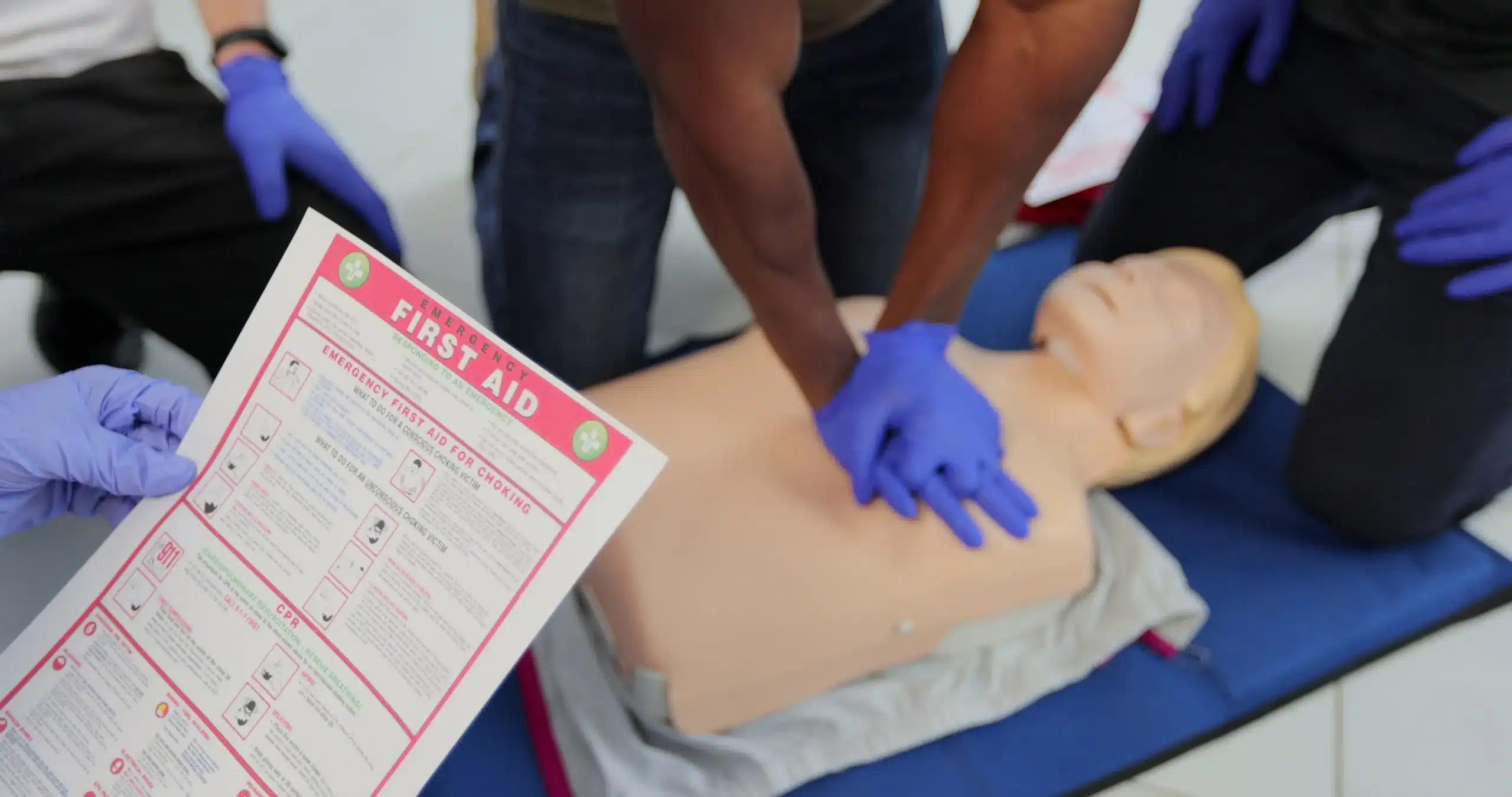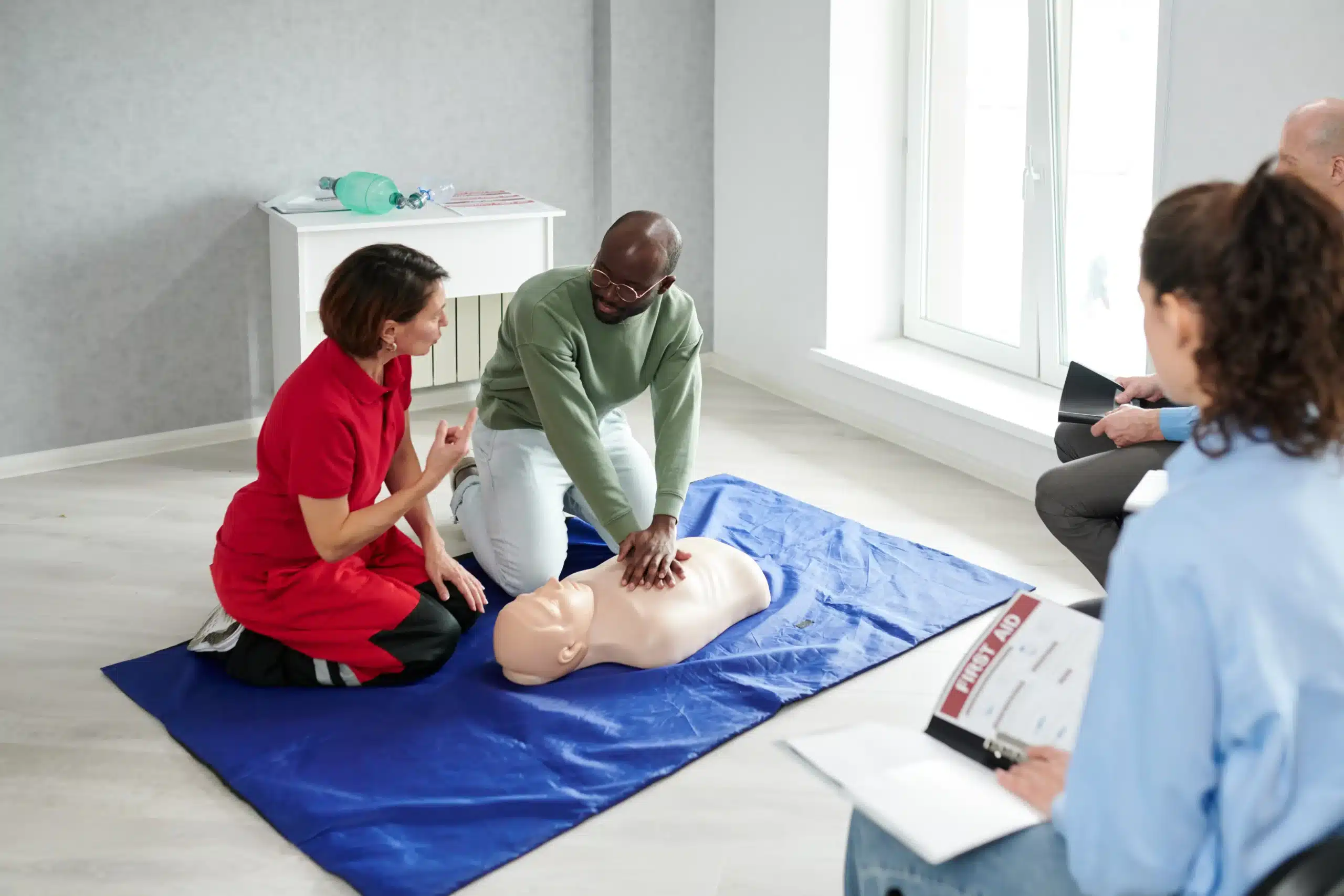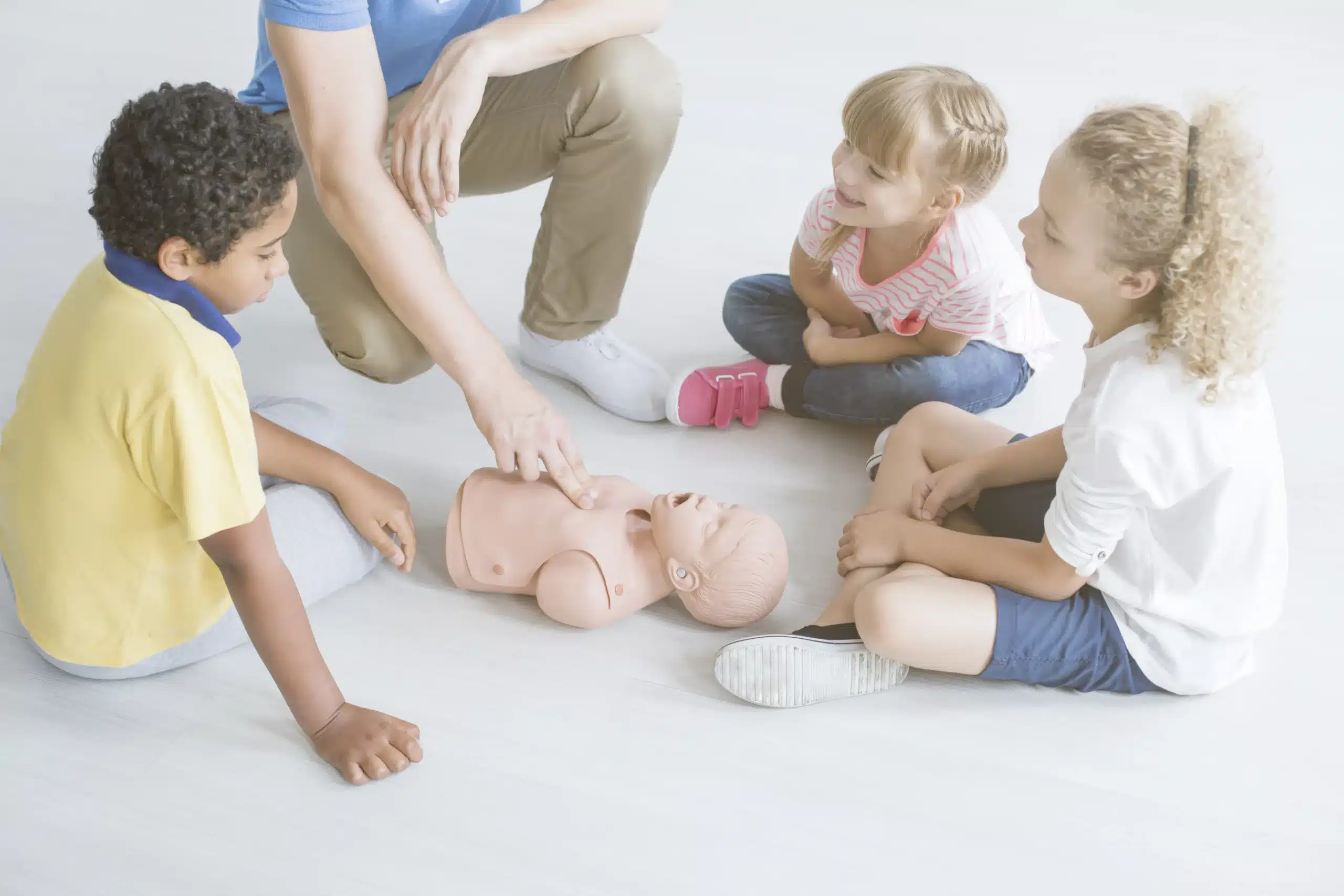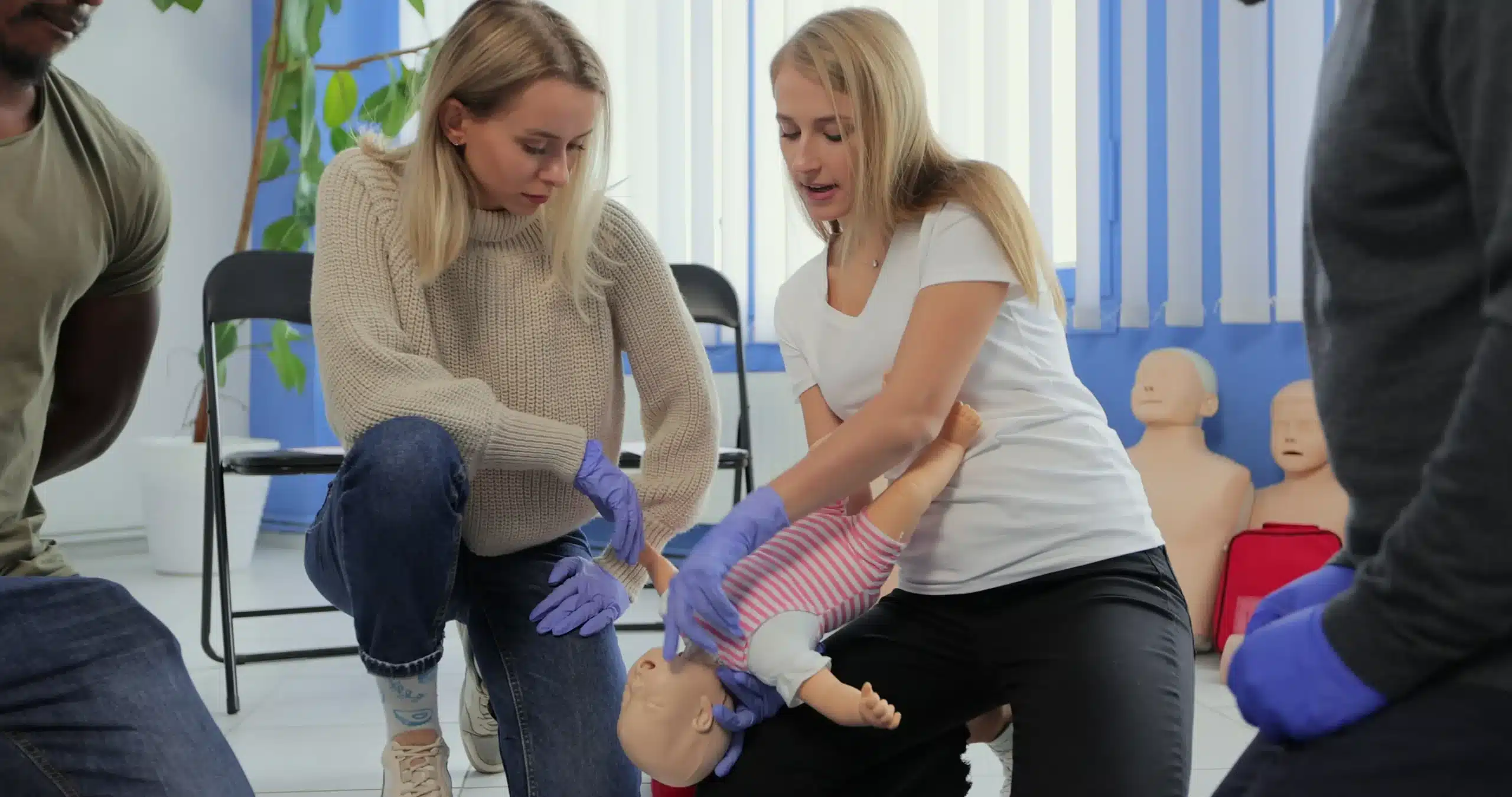As a healthcare professional in Dublin, you know that maintaining your CPR skills is paramount. But traditional CPR training can be cumbersome, with lengthy, infrequent sessions that often lead to skill decay. There’s a smarter way to stay sharp: Resuscitation Quality Improvement (RQI). RQI in Dublin offers a dynamic approach to CPR training, focusing on short, frequent practice sessions that fit easily into your busy schedule. This innovative program empowers you to maintain peak performance, ensuring you’re always ready to deliver effective, life-saving care. In this article, we’ll explore the benefits of RQI, how it works, and why it’s transforming CPR training in Dublin.
Key Takeaways
- RQI offers a flexible, skills-focused approach to CPR training: Short, frequent practice and online modules fit busy schedules and improve long-term skill retention.
- Dublin healthcare providers have access to RQI: The Irish Heart Foundation and other providers offer RQI training, making it readily available to those seeking to enhance their resuscitation skills.
- RQI improves both provider confidence and patient care: Consistent practice and personalized feedback build competency, leading to better outcomes and potential cost savings.
What is the RQI Programme in Dublin?
The Resuscitation Quality Improvement (RQI) Programme represents a significant advancement in CPR training, moving away from traditional classroom-based methods to a more dynamic and effective approach. It’s designed to improve CPR competency and patient outcomes. If you’re a healthcare professional in Dublin seeking to enhance your resuscitation skills, understanding the RQI programme is essential. Our RQI programme offers convenient training options.
What is RQI?
RQI is an innovative program that offers self-directed training at the point of care. Instead of infrequent, high-stakes testing, RQI emphasizes short, frequent practice sessions integrated into your daily workflow. This approach is designed to combat skills decay, a common issue with traditional CPR training, and ensure that healthcare providers are always ready to deliver high-quality CPR. The program focuses on mastery learning and provides personalized feedback to help you refine your technique. You can learn more about the benefits of this approach from RQI program resources.
Core objectives and benefits for healthcare professionals
The core objective of RQI is to improve CPR skills and, ultimately, patient outcomes. By incorporating low-dose, high-frequency practice, RQI helps healthcare professionals maintain their skills and confidence in performing CPR. This model fits busy schedules far better than traditional CPR courses. Studies have shown that RQI programs can lead to significant cost savings by improving CPR skills and potentially reducing adverse patient outcomes. The flexible nature of RQI allows you to complete training sessions at your own pace and convenience, making it easier to integrate into your existing workload. This approach not only improves long-term skill retention but also empowers healthcare providers to feel more prepared and confident in real-life emergencies.
How to Access RQI in Dublin
Where to find RQI training
The Resuscitation Quality Improvement (RQI) program, grounded in the American Heart Association’s science and powered by Laerdal Medical’s technology, is available to healthcare providers in Dublin through the Irish Heart Foundation. This program offers a new approach to CPR training, focusing on short, frequent practice sessions to improve skill retention and boost provider confidence. While our Livermore location doesn’t offer RQI directly, we encourage Dublin healthcare professionals to explore this valuable resource. For more information on locations and program specifics within Dublin, check out this helpful RQI Dublin guide.
Enrolling in RQI and flexible learning
RQI offers a flexible learning approach that adapts to the busy schedules of healthcare professionals. The program combines online learning with short, frequent hands-on practice sessions. This blended learning model allows you to learn at your own pace and refresh your skills regularly, improving long-term skill retention. This flexible training differs from traditional CPR courses, which often involve lengthy, infrequent training. RQI’s emphasis on regular practice helps maintain proficiency and build confidence in performing CPR. For Dublin-based healthcare providers, this RQI training guide offers further information on enrollment and available resources.
RQI Training: Methods and Resources
RQI training takes a different approach than traditional CPR courses. It focuses on short, frequent practice sessions to build and maintain crucial skills. This method helps healthcare providers in Dublin retain information and respond effectively in real-world emergencies. Let’s explore the core components of RQI training:
Low-dose, high-frequency learning
RQI’s low-dose, high-frequency learning model emphasizes consistent practice. Instead of cramming for a single, lengthy course, healthcare professionals engage in short, regular practice sessions. This approach improves long-term skill retention and makes it easier to fit training into busy schedules. RQI offers various pricing options, including group discounts, making it a cost-effective way to maintain essential CPR skills. This flexible, skills-focused training is particularly beneficial for healthcare providers juggling demanding workloads. You can learn more about the benefits of RQI in Dublin from this helpful guide.
Simulation technology and feedback
RQI programs leverage simulation technology and personalized feedback to create a highly effective learning experience. This allows healthcare providers to practice their skills in a safe and controlled environment, receiving immediate feedback on their performance. The RQI program addresses the problem of rapid CPR cognitive and skills decay through quality improvement sessions that measure and verify competence. This combination of simulation and feedback helps build confidence and proficiency in CPR techniques.
Online modules and hands-on practice
RQI training blends online learning modules with hands-on practice. The online component provides foundational knowledge and allows healthcare professionals to learn at their own pace. These frequent, short practice sessions improve skill retention and boost provider confidence, unlike traditional infrequent courses. This blended learning approach ensures a comprehensive understanding of CPR principles and techniques. Studies show that RQI programs can lead to significant cost savings by improving CPR skills and potentially reducing adverse patient outcomes.
RQI vs. Traditional CPR Training
RQI represents a significant shift from traditional CPR training methods. It addresses key challenges associated with conventional CPR courses, leading to better skill retention and improved patient outcomes. Let’s explore the core differences:
Practice frequency and skill retention
Traditional CPR training often involves lengthy, infrequent sessions. While informative, this approach can lead to skill decay over time. RQI tackles this with short, frequent practice sessions. This “low-dose, high-frequency” model reinforces skills, keeping them fresh in your mind and boosting your confidence when it matters most. Studies show that distributed practice leads to better long-term retention, and RQI leverages this principle effectively. This ensures you’re always ready to deliver high-quality CPR. You can explore more about RQI training at San Ramon CPR Classes.
Adapting to individual learning
RQI recognizes that everyone learns differently. Unlike traditional classroom settings, RQI offers flexible online modules and personalized practice sessions. This allows you to focus on areas where you need more practice and breeze through concepts you’ve already mastered. This adaptable approach ensures you get the most out of your training and maintain your skills at a high level. For a comprehensive guide to RQI, visit Pleasanton CPR Classes.
Impact on confidence and patient outcomes
RQI’s focus on consistent practice translates to increased provider confidence. Knowing you have the skills readily available empowers you to act quickly and effectively in emergencies. This confidence can significantly impact patient outcomes. Studies suggest that RQI programs can lead to cost savings by improving CPR skills and potentially reducing adverse patient outcomes. RQI offers various pricing options, including group discounts, making it a cost-effective way to maintain these essential skills. Learn more about our low price guarantee.
Overcome RQI Adoption Challenges
Implementing a new training program like Resuscitation Quality Improvement (RQI) can feel like a big undertaking. Understandably, there are common concerns about time, resources, and staff buy-in. But look at it this way: these challenges are actually opportunities to improve your team’s skills and patient care. Let’s break down these perceived roadblocks and explore how RQI addresses them head-on.
Address time constraints and skills decay
One of the biggest hurdles for healthcare providers is finding time for training. Busy schedules, long shifts, and competing priorities make it tough to squeeze in traditional CPR classes. RQI tackles this challenge with short, frequent practice sessions that easily fit into existing workflows. Think of it as bite-sized learning—quick, regular top-ups that reinforce skills without disrupting your team’s day-to-day responsibilities. This approach, combined with online learning modules, not only accommodates busy schedules but also improves long-term skill retention. RQI is designed to combat skills decay, ensuring healthcare providers are always ready to deliver high-quality CPR. For more information on how RQI fits into busy schedules, check out our RQI resource page.
Manage resources and costs
Another common concern is the cost of implementing a new training program. While there’s an initial investment involved with RQI, consider the long-term benefits. Studies have shown that RQI programs can lead to significant cost savings by improving CPR skills and potentially reducing adverse patient outcomes. Investing in RQI isn’t just about meeting compliance standards—it’s about equipping your team with the skills they need to provide the best possible care. This can translate to better patient outcomes and reduced healthcare costs down the line. For more information on cost-effective training options, check out our discount group classes.
Improve engagement and compliance
Getting everyone on board with a new system can be a challenge. RQI addresses this by using engaging technology and a flexible learning approach. The program utilizes the latest science and educational technology to create a comprehensive learning system that addresses the problem of rapid CPR cognitive and skills decay. The interactive nature of RQI keeps learners motivated and involved, leading to better knowledge retention and improved compliance rates. The personalized feedback and self-directed learning options empower individuals to take ownership of their training, creating a more positive and effective learning experience. Learn more about RQI and its benefits by exploring our RQI classes.
RQI in Dublin: Feedback and Effectiveness
RQI is transforming CPR training, and the feedback from healthcare providers in Dublin has been overwhelmingly positive. Let’s explore why this innovative approach is making such a difference.
Improved skills and provider confidence
Traditional CPR courses often involve lengthy, infrequent training sessions. This can lead to skills decay and decreased provider confidence. RQI addresses this with short, frequent practice sessions that reinforce essential skills and boost confidence. Providers feel better prepared to respond to real-life emergencies, knowing their skills are sharp. This skills-focused approach creates a more competent and confident workforce. The emphasis on regular practice, combined with immediate feedback, helps providers master the techniques and maintain proficiency.
Flexibility and accessibility
RQI offers a flexible and accessible way for Dublin healthcare providers to maintain their CPR skills. The program’s online modules and short practice sessions fit easily into busy schedules. Various pricing options, including group discounts, make RQI a cost-effective solution for hospitals, clinics, and individual providers. This accessibility ensures more healthcare professionals can receive high-quality CPR training, ultimately benefiting the entire community. The Irish Heart Foundation also recognizes the value of RQI, highlighting its use of cutting-edge technology and educational strategies.
Impact on patient care
The positive impact of RQI extends beyond individual providers to patient care. Studies show RQI programs can lead to significant cost savings by improving CPR skills and potentially reducing adverse patient outcomes. By ensuring that healthcare providers maintain their skills through frequent, low-dose practice, RQI contributes to a higher standard of care and better outcomes for patients in Dublin. Improved CPR skills translate to more effective interventions during cardiac arrests, increasing the chances of survival and minimizing long-term complications. Research also suggests that RQI can lead to cost savings by reducing the need for remedial training and improving overall team performance.
The Future of RQI in Dublin
RQI is changing how healthcare providers in Dublin approach CPR training. Looking ahead, several key developments promise to further enhance resuscitation skills and patient outcomes.
Guideline updates
The RQI program aligns with the latest scientific guidelines from the American Heart Association, ensuring healthcare professionals receive training based on current best practices. This commitment to evidence-based practices means RQI will continue to evolve alongside advancements in resuscitation science. Staying informed about these updates through the Irish Heart Foundation is crucial for maintaining high-quality patient care. The Irish Heart Foundation plays a key role in bringing RQI to the Irish healthcare market.
Program expansion and integration
RQI offers flexible, skills-focused CPR training that fits the busy schedules of Dublin healthcare providers. Short, frequent practice sessions combined with online learning improve long-term skill retention. Various pricing options, including group discounts, make RQI a cost-effective way to maintain essential CPR skills. As RQI gains wider recognition, expect to see further expansion and integration within Dublin’s healthcare systems, including more training sites, broader program accessibility, and integration with existing professional development initiatives.
Continuous improvement
RQI emphasizes continuous improvement through low-dose, high-frequency training. Studies show that these “booster” sessions significantly improve CPR skill retention, leading to better patient outcomes. The focus on ongoing practice and feedback helps providers maintain their skills and confidence in performing high-quality CPR. The future of RQI likely involves further refinement of training methods, incorporating new technologies and data-driven insights to optimize learning and performance. This commitment to continuous improvement will help ensure that RQI remains at the forefront of resuscitation training in Dublin.
Related Articles
- Find CPR Classes in Dublin: Your Complete Guide – Livermore CPR Classes
- CPR & First Aid Training in Dublin: A Complete Guide – Livermore CPR Classes
- CPR Certification in Dublin: Your Guide – Livermore CPR Classes
- RQI Training in Mountain House: Your Complete Guide – Livermore CPR Classes
- ACLS Courses in Dublin: A Complete Guide – Livermore CPR Classes
Frequently Asked Questions
How does RQI differ from traditional CPR training?
RQI emphasizes short, frequent practice sessions integrated into your workflow, unlike traditional CPR courses which typically involve longer, less frequent sessions. This approach helps maintain skills and confidence over time. RQI also incorporates personalized feedback and simulation technology, offering a more tailored and engaging learning experience.
Where can I access RQI training in Dublin?
While Safety Training Seminars in Livermore doesn’t directly offer RQI, Dublin healthcare professionals can access the program through the Irish Heart Foundation. They provide resources and information on local training sites and program specifics.
What are the core benefits of RQI for healthcare providers?
RQI helps healthcare professionals maintain their CPR skills and confidence through consistent practice. This leads to improved competence in real-life emergencies and potentially better patient outcomes. The flexible learning model also makes it easier to fit training into busy schedules.
How does the low-dose, high-frequency learning model work?
Instead of infrequent, lengthy training sessions, RQI uses short, regular practice sessions. This approach reinforces skills more effectively, combating skill decay and ensuring healthcare providers are always ready to perform high-quality CPR.
Why is RQI considered the future of CPR training in Dublin?
RQI’s focus on continuous improvement, flexible learning, and integration of technology positions it as a leader in resuscitation training. Its alignment with the latest guidelines and its adaptable nature mean it can evolve with advancements in the field, ensuring healthcare providers always have access to the most effective training methods.






